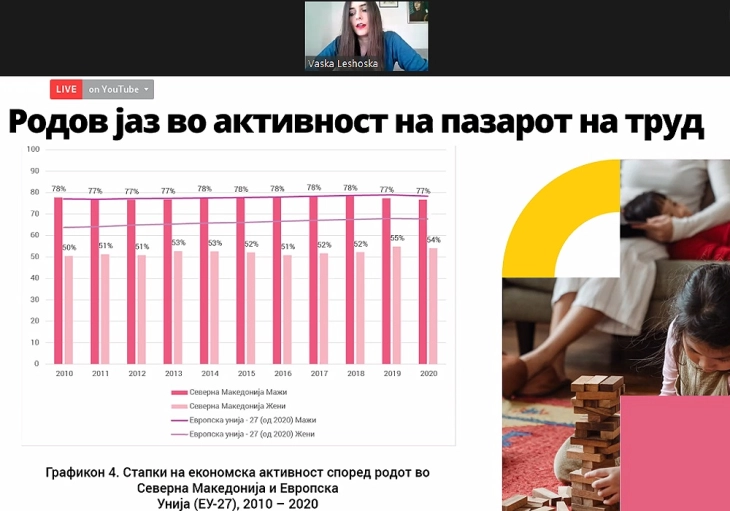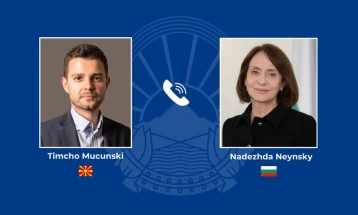Unpaid care work perfumed mostly by women, men’s participation is insignificant: study

Skopje, 4 November 2021 (MIA) – On average, women perform 72.5% of unpaid care work while men perform such tasks a mere one quarter. On average, men spend more time for paid work while women are dedicated more to unpaid care work, shows a recent study entitled “Men in Care (MiG): Caring Masculinity in North Macedonia”.
According to the findings of the study, conducted by the NGO Reactor – Research in Action, existing legislation provides no models for parental leave that would take into consideration the role of both parents in caring for and bringing up children.
Presenting the findings Thursday online, Vaska Leshkoska, research coordinator, said that 77% of men in the past year were active job seekers on the labor market with only 54% of women being active job seekers
“If time spent in unpaid work at home is paid at least minimum wage, it would have monetary value of EUR 1,917,895,508, which is 17.18% of the country’s GDP in 2019. It is necessary the value of unpaid care work to be recognized as well as to find formal solutions to the informal care economy,” she stated.
Pointing out the Gender Balance Strategy 2021-2026, Svetlana Cvetkovska of the Labor Ministry said that new gender equality law was in the works so as to align the national legislation with the European.
Also, she added, efforts are made a new labor law to be passed, which regulates parental leave as a way to improve gender equality. “We believe that by introducing shared parental leave we will improve children’s early development,” said Cvetkovska.
Men don’t participate enough in promoting gender equality, according to Bojan Jovanovski of Hera – Association for Health Education and Research. Discussing caring masculinity in education and gender-sensitive education, which should be included in elementary education under a new reform, he said that sex education is a revolutionary move for the society as a whole. Sex education is elective subject in ninth grade. “This year there has been a strong opposition from representatives of so called anti-gender organizations and association of parents who are against the reform,” Jovanovski said.







